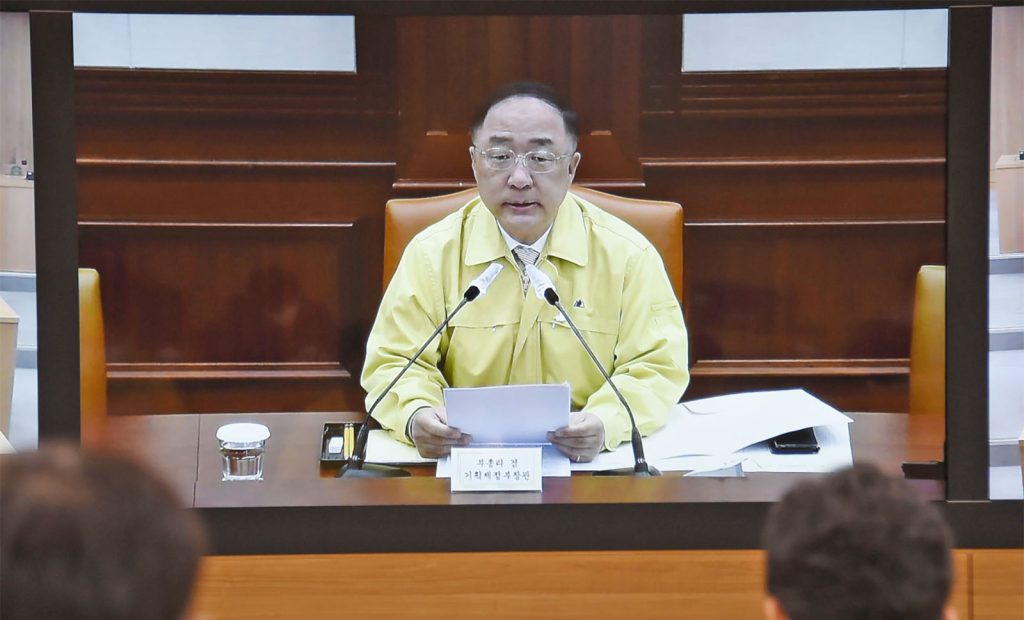South Korea plans to charge foreign patients infected with COVID-19 for their hospitalization and treatment costs, amid a surge in the number of imported cases involving foreign nationals.
“We will make foreign patients pay the whole or part of the cost for their hospitalization, but will do so under the principle of reciprocity considering diplomatic relations,” Prime Minister Chung Sye-kyun said Sunday at a governmental meeting on the COVID-19 response.
Under the current law, the costs of COVID-19 testing, in-hospital care, and other treatment are covered by the Korean government regardless of nationality. The medical fees for COVID-19 patients depend on the conditions, underlying illnesses, and the number of days spent in medical facilities.
The push for such a change comes as the rising number of foreign patients among imported cases poses a burden on the country’s medical system. In the past two weeks, 63.2 percent of COVID-19 cases have been imported from overseas, as the virus pandemic shows no signs of abating around the globe. So far, an estimated 700 foreign nationals have been diagnosed with COVID-19 in Korea. The government said it will push for a revision of related laws to introduce the change. Details are sketchy, but officials say they will likely have those who “intentionally cause a burden to the country’s quarantine and medical system” and who violate self-quarantine rules pay for their own expenses.
Korea saw the number of its new coronavirus cases drop below 60 on Sunday, a day after its highest one-day total — 113 — in nearly four months due to imported cases involving Russian sailors and Korean workers returning from Iraq. On Sunday, Korea reported 58 new COVID-19 cases, 46 imported from overseas, and 12 locally transmitted, according to the Korea Centers for Disease Control and Prevention. The total caseload rose to 14,150.
Of the 46 imported cases, 42 were from Asia — 38 from Iraq, two from Russia and one each from India and Hong Kong — and four were from the United States. Forty-two cases were identified during the quarantine screening process at the border, while four were detected while the individuals were under mandatory self-quarantine in Korea. One more person tested positive for the virus after coming into contact with Russian sailors infected with the virus aboard a ship docked in Busan. Nine secondary transmission cases have been reported in connection with the sailors.
According to Busan Medical Center, hospital fees for the 20 Russian sailors infected with the virus were 8 million won ($6,660) on average per person. About 58 patients from the Russian-flagged vessels currently remain hospitalized in Busan. Thirty-eight of the imported cases reported Sunday were among the 293 Korean workers who returned home Friday from a construction site in Iraq. The government sent two military aircraft on Thursday to Iraq, where some 3,000 cases are being reported daily, to bring them back home safely.
As for locally transmitted cases, five each were registered in Seoul and Gyeonggi Province, with one each in Busan and Gwangju. The cases are linked to several clusters, including a nursing home in western Seoul (where 25 cases originated) and an office in southern Seoul (37). So far, 12,890 people, or 91.1 percent, have been released from quarantine upon making full recoveries, up 24 from a day earlier. Some 962 people are receiving medical treatment under quarantine. Fifteen people remain in serious or critical condition.
The death toll stays unchanged at 298. The overall fatality rate stands at 2.11 percent — 2.48 percent for men and 1.8 percent for women. The rate is much higher for those in their 80s and over — 24.8 percent — and those in their 70s — 9.4 percent. The country has carried out 1,522,926 tests since Jan. 3, with 19,214 people awaiting results as of Sunday.
Source: The Korea Herald
